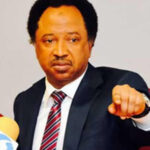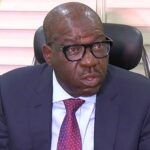It is becoming habitual for Nigerian public officers to lobby for the establishment of universities in their constituencies or hometowns in order to harness votes, fast track development of their districts and publicise their hometowns without minding the consequences on the quality of graduates to be produced while most of their children school overseas.
An erstwhile South Western Governor in 2006 distributed the campuses of a state university he established while in office across six geopolitical zones of his state just for political gains.
- UBA publishes names of 3 forex defaulters
- Rental values plunging despite inflation – Expert
Out of the 193 universities in Nigeria as of 2021, according to the National Universities Commission’s (NUC) official record, only the University of Ibadan made the top 1,000 in Times Higher Education rankings in September, 2016, compared to Singapore that has just 34 universities yet ranked among the top 800 consistently.
In fact, the major problem impeding the development of public tertiary institutions in Nigeria is paucity of funds. This often pitches the Academic Staff Union of Universities (ASUU) against the federal government thereby leading to on-and-off strikes and subsequent slow academic calendar.
It is an irony that government which claims that its failure to meet ASUU demands is due to paucity of funds, yet announced the establishment of four new universities in June, 2021, while the National Assembly passed bills for the establishment of three new ones in July, 2021.
Apparently, government is more interested in playing politics with university education than bringing it in tandem with global best practices.
The number of prospective undergraduates writing JAMB annually have skyrocketed over the years due to increase in population leading to unprecedented competition for admission, with some students, especially those from humble backgrounds, avoidably being delayed for few years before gaining admission into government universities. This notwithstanding, producing thousands of half-baked graduates year-on-year is detrimental to our national development.
University serves as the reservoir of knowledge for human existence and development. It is a citadel where professional and policy makers are being trained and imparted with the requisite skills for societal evolution from generation to generation.
Multiple studies have revealed connections between developments in advanced nations and reforms in the education sector.
Countries endowed with significant graduates that have top-notch university education tend to have higher life expectancy and good medicare, more stable economy, inventive, and have lower crime. Nigerian political class should understand that there are policies they can enact and finance to develop their constituencies aside establishment of government universities. Thus, they should stop politicising the education sector for their own selfish interests. Even if new ones must be established, they should be adequately funded, staffed and equipped.
Samson Bright can be reached through [email protected]
 Join Daily Trust WhatsApp Community For Quick Access To News and Happenings Around You.
Join Daily Trust WhatsApp Community For Quick Access To News and Happenings Around You.


